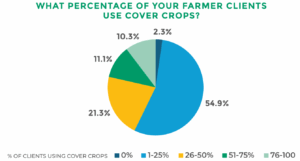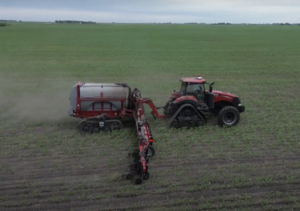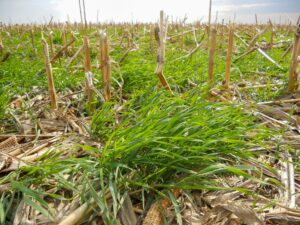By: 4R Plus
July 2020
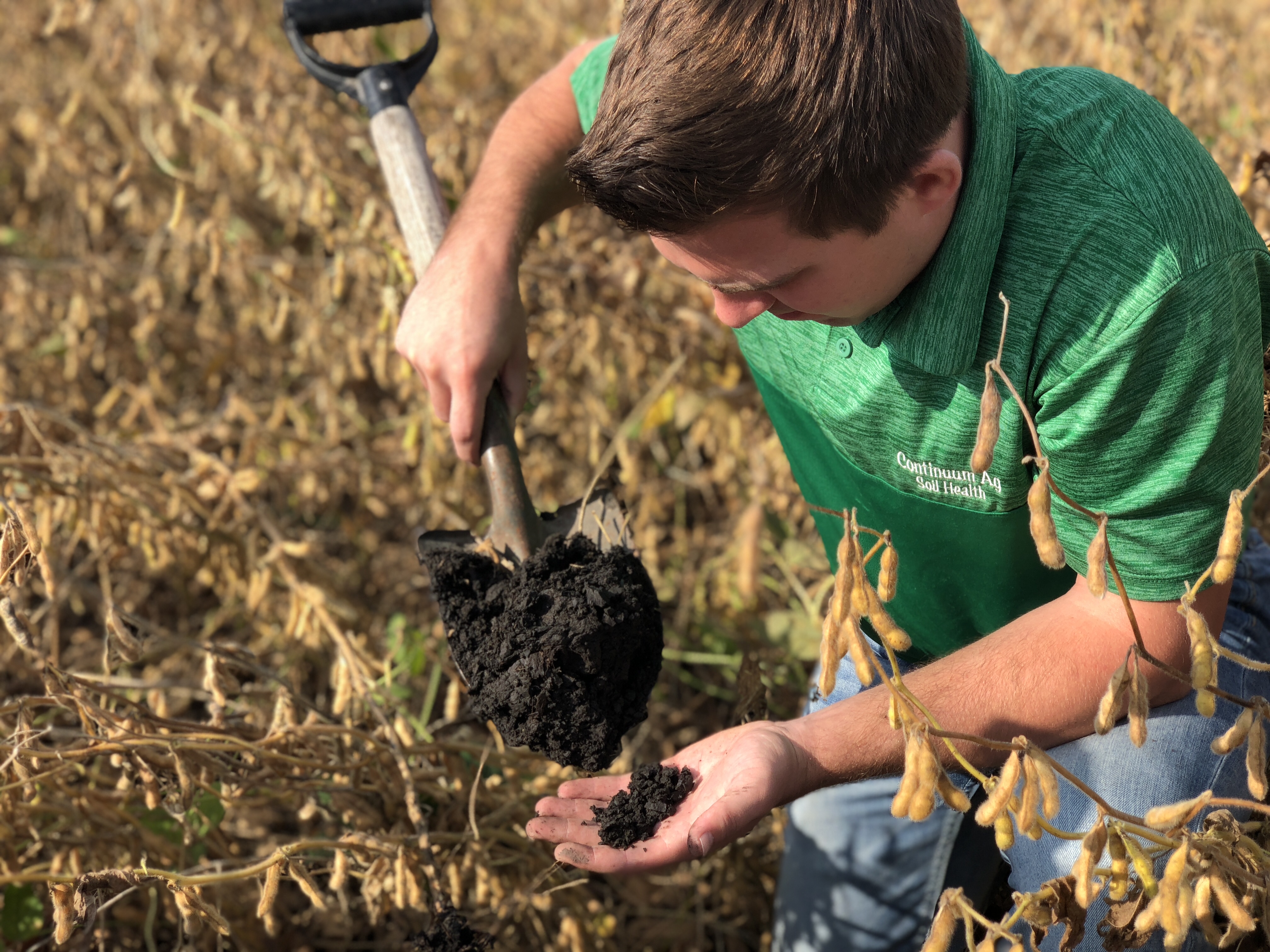
Mitchell Hora continually fine-tunes 4R Plus practices on the Washington County land he farms alongside his father. The soil health practices also lay the groundwork for additional revenue opportunities, like capturing carbon from the atmosphere.
Hora understands the importance of building carbon in the soil. It improves water and nutrient holding capacity, which improves productivity and his bottom line. Conservation practices, like cover crops that build organic matter, also help keep valuable soil where it’s most productive. He says keeping soil in place is critical to the longevity of his farm.
“Doing the right thing for the soil by utilizing conservation and nutrient stewardship tools keeps the farm sustainable,” he said. “As a farmer, I’m a businessman first. A practice has to reap economic benefits. If we can get paid for carbon, it’s the cherry on top of the sustainability efforts we’re doing on the farm.”
Hora is involved with a variety of companies and organizations offering ecosystem service credits that are purchased by companies to offset their unavoidable emissions. “We’re running a couple of pilot program trials on our farm,” he said. “I’m also consulting with other farmers and helping with data collection.”
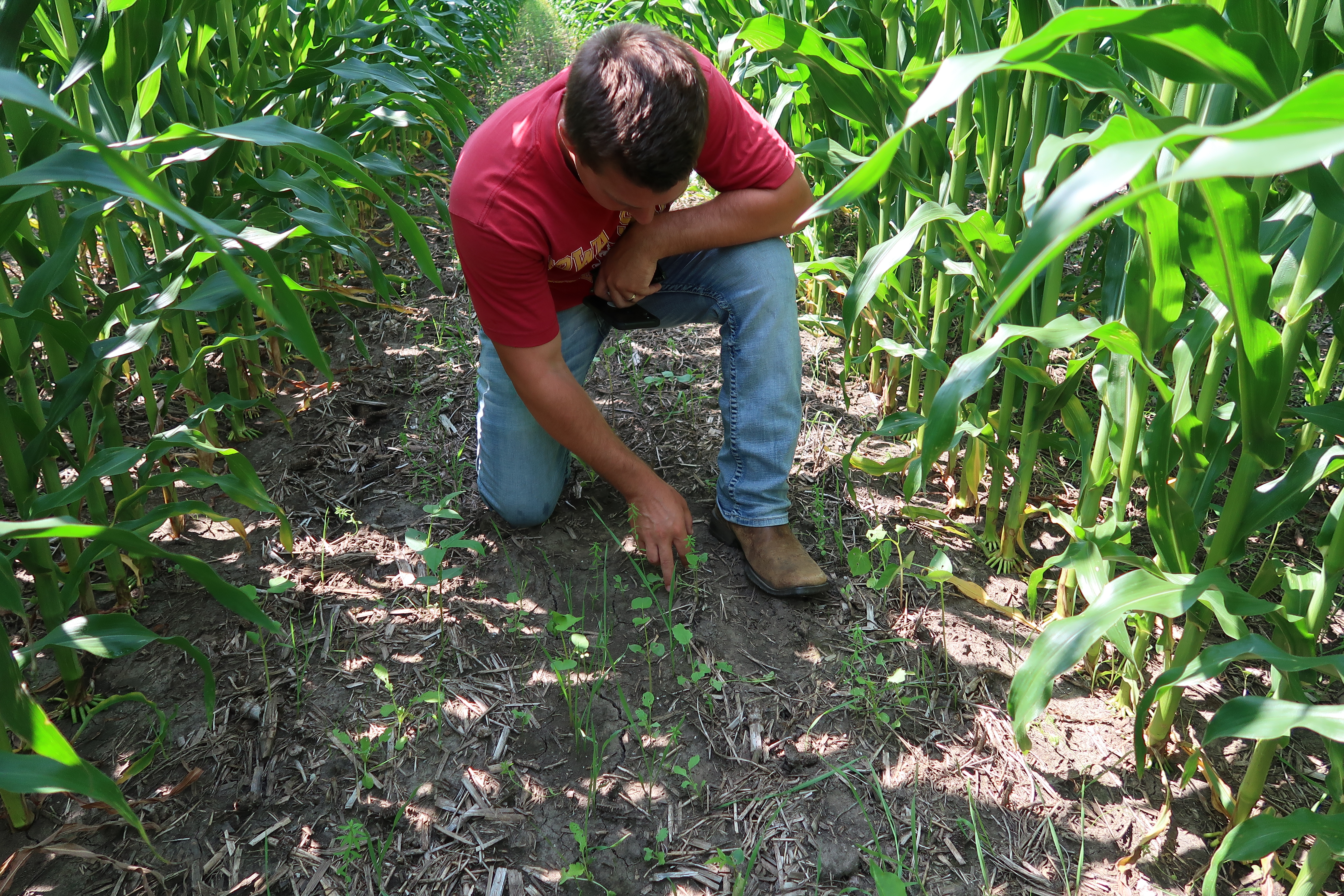
While each program for generating ecosystem service credits is set up differently, Hora says a common denominator is gathering information for the baseline. “In addition to testing soil for organic carbon, basic management information is submitted, like when the crops were planted and harvested, what tillage practices are used, if residue is being removed, if cover crops are planted and if manure or other organic additives are applied,” he said.
After the baseline is established, newly added practices that have been shown to sequester carbon can begin generating credits. “This is the piece called ‘additionality,’ and it’s not as intimidating as it sounds,” said Hora. “It just means a new practice needs to be established, and it can be as simple as a minor adjustment to your nutrient plan, using a different stabilizer or altering your cover crop seed mix.”
The greater the change from the baseline, the larger the potential for credits to be generated. Hora encourages farmers to establish a baseline because of the potential additional revenue that can be generated for soil health practices. “Data is important and can be used in multiple fronts. You can potentially get paid for carbon, as well as for water quality credits that are being developed,” he said. “Layering credits for ecosystem services on top of the benefits that farmers reap using 4R Plus practices should encourage farmers to expand what they are doing and adopt new practices.
“I look at it as a business decision and a way to invest in the farm and the community,” he added. “I want to do things better. I’m interested in improving my operation and being more sustainable now and in the future. If what I’m doing on the farm helps the environment, it’s an added benefit.”
Watch the video to learn more about carbon rewards.

